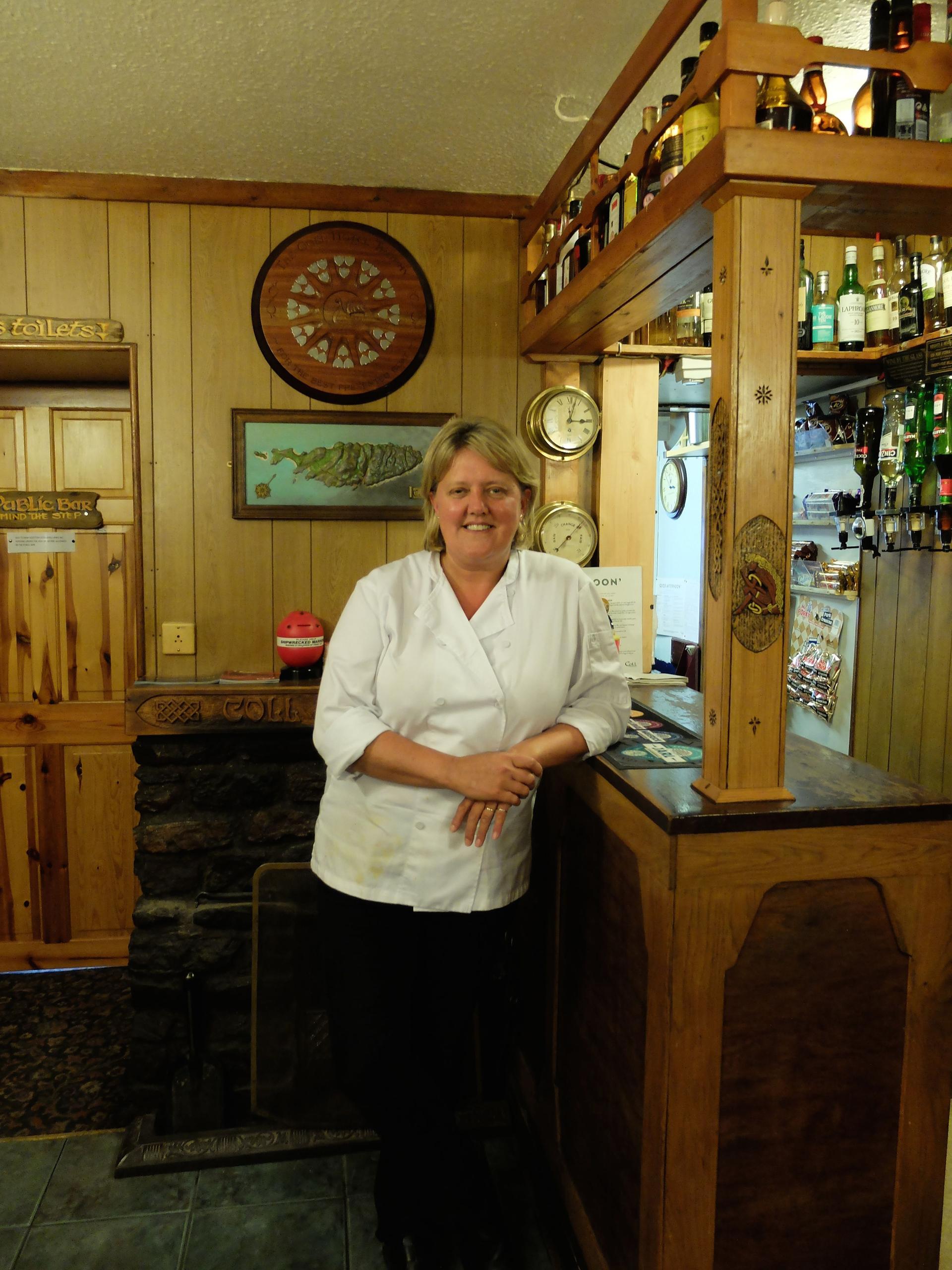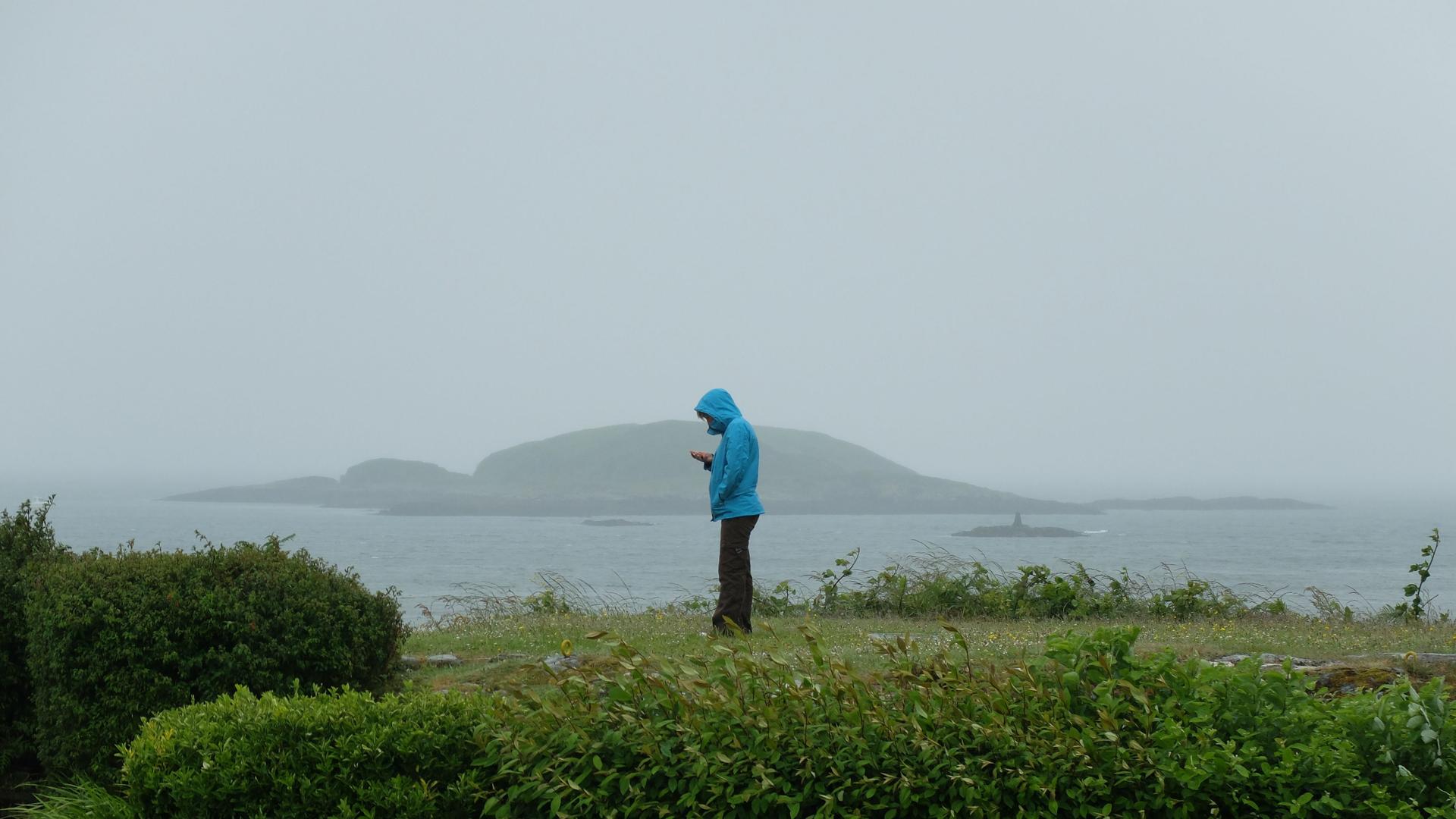A woman looks for a signal on the Isle of Coll, which is known for its near-total lack of cell phone coverage.
The Isle of Coll is a three-hour ferry ride from the Scottish mainland, past cloud-covered hills and cliffs dropping into the sea.
Quiet returns as the ship pulls away. And it might feel like there's nothing here: no visitor center, no taxis. And you can't pull up a map on your phone — if you had a signal on the ferry, it disappears on the island.
A short walk from the pier is the only hotel on the island, and on this summer afternoon, owner Julie Oliphant is in the lounge having a drink with some friends. They're talking about what they see so often on the mainland — people glued to their smartphones.

On the Isle of Coll, it's sometimes possible to get a signal from a neighboring island, but most phones just don't work here. With a population of about 200 people, it's not a viable market for a cell phone provider, so the island doesn't have its own tower.
And plenty of people on the island like it that way.
One of them is Pat Graham, who owns a campground inside what used to be the walled garden of the island castle. She says a big reason people come to the Isle of Coll is the chance to get away.
“You can sit somewhere on Coll and not see another person for a whole day, which is beautiful,” she says. “It's one of these sort of places where you can just chill out and make your own life, whatever you want to do. It used to be like that, but then you're pressurized now into being modern or upbeat or whatever they want to call it.”
Last year, a group of people on the island began working with the Scottish government on a plan to bring mobile phone coverage to Coll. Connecting Scotland's most remote places through digital technology is a major priority of the Scottish government, and the project went ahead.
Construction has now started on a 50-foot cell phone tower with 4G service. The cost, almost $300,000, will be mostly paid for by the government. But the island itself is also contributing. Organizations within the community will pay for the maintenance and electricity. This kind of funding arrangement has never happened before in Scotland.
Alex Maclean-Bristol, a farmer on Coll, is providing the land for the tower essentially for free.
“I want to be able to use my phone when I'm out on the hill for internet and stuff like that,” he says, “And I think it's good for the island. It's wonderful living in a backwater in some ways, but actually to run a business, you want to have the same tools as everyone else.”
Maclean-Bristol argues that technology is one of the things keeping this small island alive, and that it's essential to embrace change.
But change can be a difficult question, and the mobile phone plan has been controversial.
Some people oppose the tower because of how it will look, or because of the cost. And some on the island say it's about more than that. Something seems to happen when people come to Coll and learn they can't take calls — and can't stay connected to where they came from.
They get to be where they are.
Julie Oliphant says she sees it at the hotel. “We have guests and their kids are just stuck to their phones and their Internet all the time, when it doesn't work here, the parents just get all the phones, sling them in the cupboards, and they turn back into 12-year-olds and go off and play on the beach.”
One mother who lives on Coll describes childhood on the island as “free range.” And on a day in August, children do look free as they run and kick balls through the village. People are out for the annual Coll Show, which has been happening on the island for almost 100 years. There are competitions for things like best cabbage and best blackface sheep. There are races, tug-of-war battles, and prizes.
This year, there's no one standing apart, talking on the phone, or in a corner sending a text. Soon, though, people on Coll will have the same choices as people on the mainland — to use cell phones, and also to turn them off.
